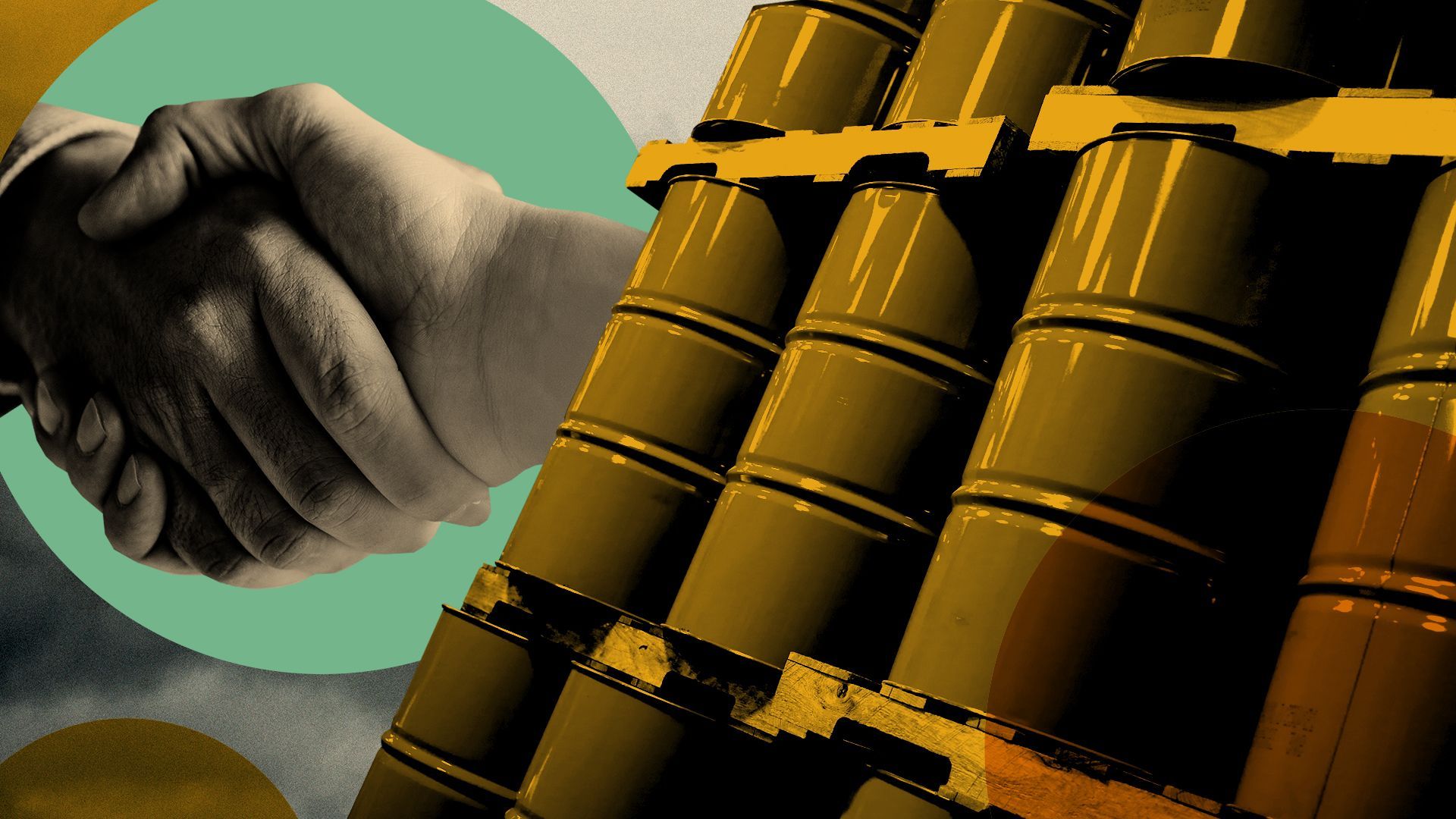COP28, OPEC create double dose of drama for oil

- Ben Geman, author ofAxios Generate

Illustration: Annelise Capossela/Axios
The immediate and long-term future of oil will face intense scrutiny this week.
What we're watching: The COP28 summit in the United Arab Emirates, which starts Thursday.
- The annual UN talks, held in a petro-state this year, will feature multifront battles over how fossil fuels figure in climate policy.
- Industry execs and oil-producing nations argue robust demand calls for their skills and scale in using their products more cleanly, including carbon capture.
Yes, but: Activists and multiple countries want a clear summit endorsement of getting away from fossil fuels, not just mitigating their impact.
Meanwhile: Russia and the allied oil producers known as OPEC+ will huddle on Thursday for a delayed meeting about output levels. All eyes are on...
- Whether OPEC+ deepens existing output cuts.
- Whether Saudi Arabia — OPEC's dominant producer — extends separate cuts currently in place through December.
The big picture: Bigger or extended cuts may help shore up prices, which are roughly 13% below mid-October levels, despite recent advances.
- The meeting was supposed to be yesterday, but reported tensions with African producers forced a delay.
What they're saying: The climate summit's opening could influence OPEC+ talks, RBC Capital Markets analysts said.
- They write that OPEC members will "endeavor to maintain public displays of harmony with COP28 set to begin in Dubai on the same day."
- RBC also sees Gulf producers looking to show unity as they call for a "lasting ceasefire" between Israel and Hamas.
- Their "base case" prediction is extension of current cuts but no deeper pullback.
The intrigue: An International Energy Agency analysis unveiled ahead of COP28 puts fresh pressure on oil companies.
- IEA's look at the industry's role in "net zero transitions" says the sector faces a "moment of truth" in Dubai.
State of play: It knocks the industry for putting too little into low-carbon investments while pulling in $3.5 trillion in average annual revenues since 2018. It also says companies have opportunities in energy transition.
- The study warns the industry that if countries follow through on their climate pledges, oil and gas demand would fall steeply by 2050.
Quick take: The report, and IEA boss Fatih Birol's accompanying remarks, are unusually blunt.
- IEA said the industry currently a "marginal force" building a clean energy system.
- And stronger commitment would mean "letting go of the illusion that implausibly large amounts of carbon capture are the solution."
- CNN has more on IEA's brushback pitch.
The bottom line: This is an important week for oil's present and future.